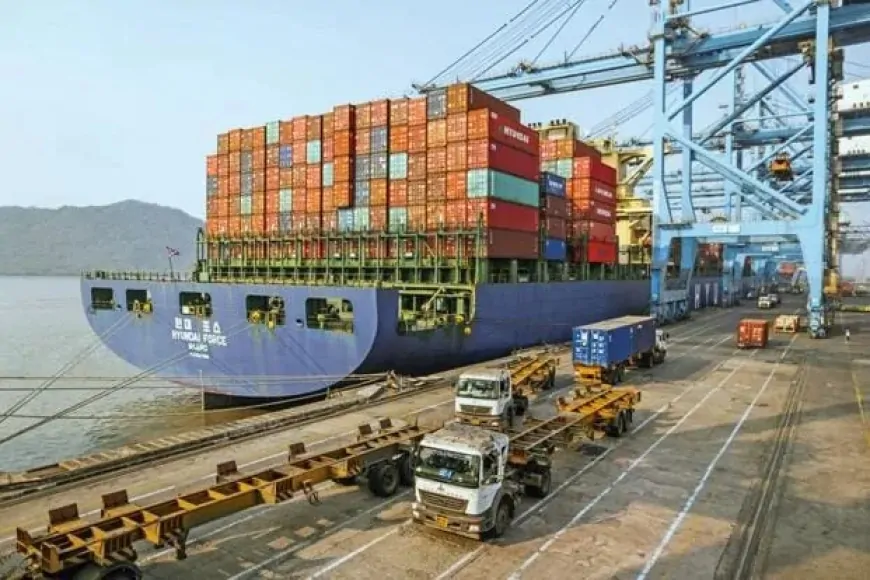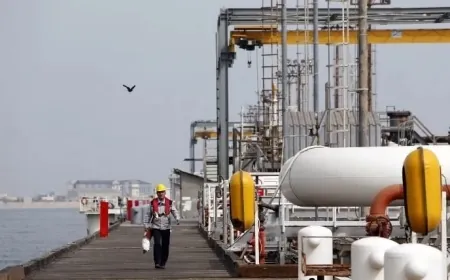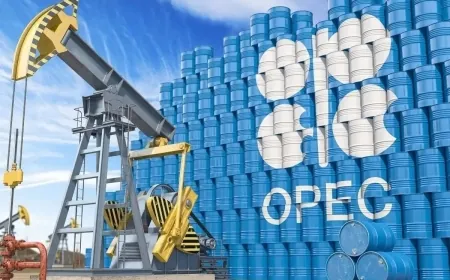Can US Sanctions Really Stop China’s Iranian Oil Imports?
Despite US sanctions, China’s oil imports from Iran continue. Discover how traders are finding ways around restrictions and what it means for global oil markets.

China's imports of Iranian oil may slow down temporarily due to new U.S. sanctions, but traders believe the flow will continue. The sanctions have targeted a Chinese refinery and several tankers, leading to higher shipping expenses. However, Chinese buyers are expected to find ways to work around these restrictions.
What Happened?
The U.S. recently imposed sanctions on Shouguang Luqing Petrochemical, a Chinese refinery, and some ships transporting Iranian oil. This is part of ongoing efforts by the U.S. to pressure Iran by cutting its oil sales. It’s the fourth round of sanctions under President Donald Trump’s push to reduce Iran’s oil exports.
Impact on Oil Imports
Experts say Iranian oil shipments to China had already been declining due to rising shipping costs caused by previous sanctions. Now, the latest sanctions may slow down imports further. However, many believe Chinese companies will adjust their business models to keep the oil flowing, possibly by using different payment methods or alternate shipping routes.
Freight rates for large oil tankers from Malaysia, a common transfer point for Iranian oil, have jumped to $3-$4 per barrel, more than doubling since late 2024. This makes Iranian oil more expensive, but still often cheaper than other sources.
China’s Oil Demand and Response
Despite challenges, China’s oil imports from Iran surged in February, reaching 1.43 million barrels per day, up from 898,000 in January. Analysts predict that March volumes will drop as refiners pause to assess the new sanctions.
To bypass restrictions, traders often label Iranian oil as originating from Malaysia, making it harder for U.S. authorities to track.
China’s Stance on Sanctions
China has criticized the U.S. sanctions, calling them “illegal” and unfair. The government has promised to protect its companies, offering reassurance to traders who rely on Iranian oil.
Shouguang Luqing Petrochemical, which processes 160,000 barrels per day, is one of China’s major buyers of discounted Iranian crude. This is the second time the U.S. has sanctioned a Chinese refinery, with Haiyou Petrochemical facing similar action in 2022.
Economic and Political Ramifications
The ongoing sanctions highlight the growing tensions between the U.S. and China over energy security and foreign policy. While the U.S. aims to weaken Iran's economy by restricting its oil revenue, China’s reliance on discounted crude from sanctioned countries reflects its broader strategy to secure affordable energy resources.
This geopolitical conflict also signals potential shifts in global oil trade dynamics. As China strengthens its economic alliances with Iran and other oil-exporting nations facing sanctions, alternative payment systems using yuan or other currencies may grow in prominence, further challenging the dominance of the U.S. dollar in international trade.
Moreover, China’s commitment to supporting its companies and maintaining energy supply underscores its long-term strategy to prioritize domestic economic stability. Smaller independent refineries, known as "teapots," benefit significantly from discounted oil, keeping production costs low amid fluctuating global energy prices.
Will Oil Imports Stop Completely?
Traders don’t expect the sanctions to entirely stop China’s imports of Iranian oil. Iran offers significant discounts, helping Chinese refiners save billions of dollars, especially as China’s economic growth slows and fuel demand remains weak.
One trader said a client wasn’t concerned about the sanctions and continued requesting Iranian oil prices, indicating that business is likely to continue.
While the sanctions may create short-term difficulties, Chinese refiners are likely to find alternative ways to keep Iranian oil flowing. However, the increased costs will add pressure on refiners already dealing with low profit margins.
Ultimately, the evolving sanctions landscape will test the resilience of China’s energy strategy and its ability to navigate geopolitical headwinds. Market observers will be closely watching how Chinese refiners adapt and how this conflict impacts global oil markets in the months ahead.
Also Read: US Crude Oil Imports Drop to Lowest Level in Two Years, EIA Reports
































































